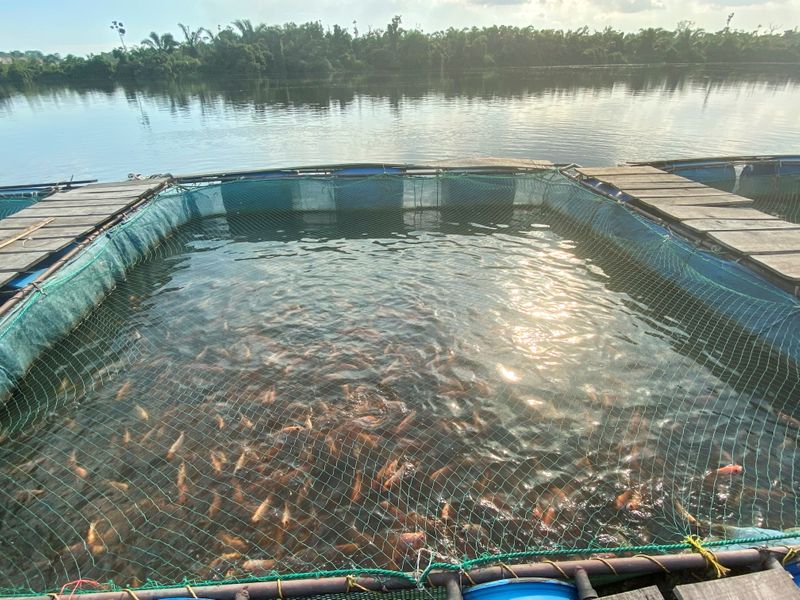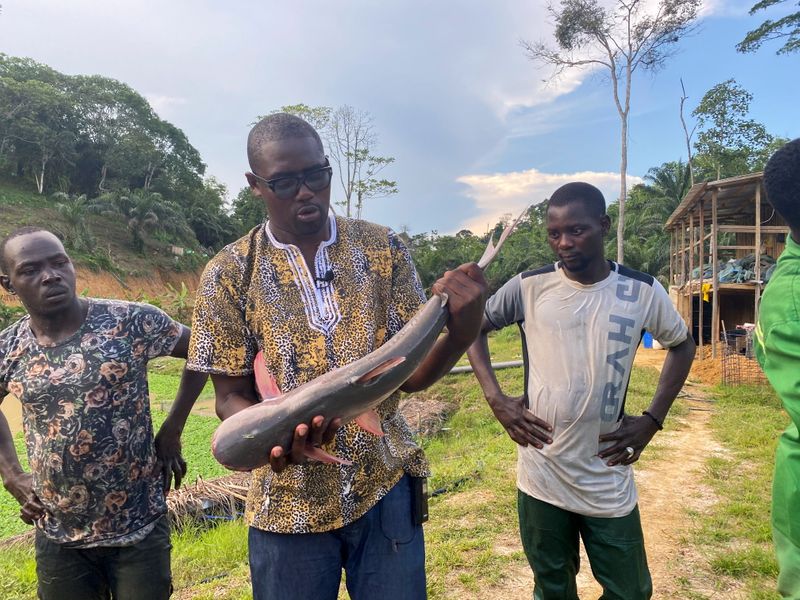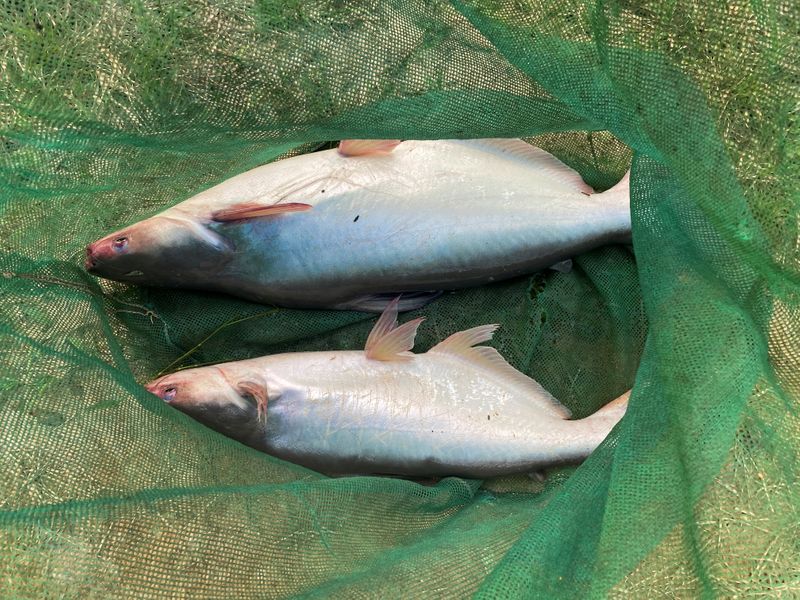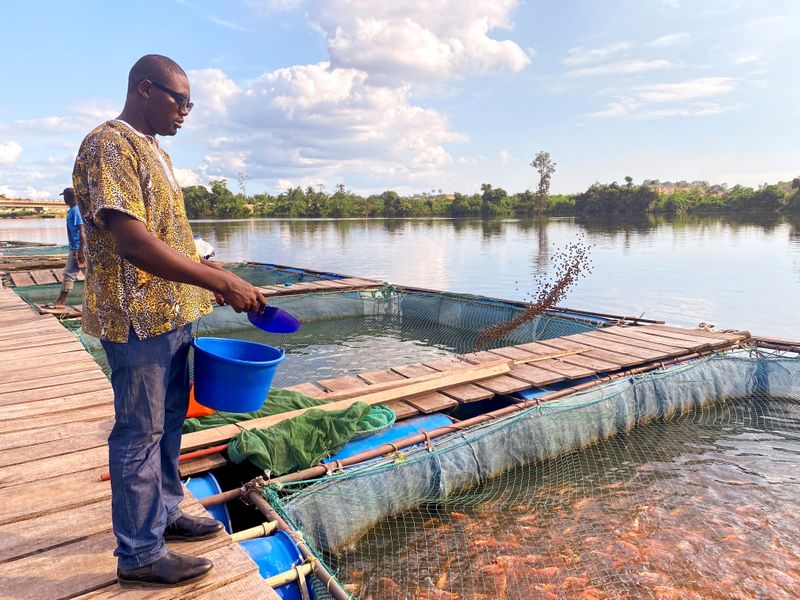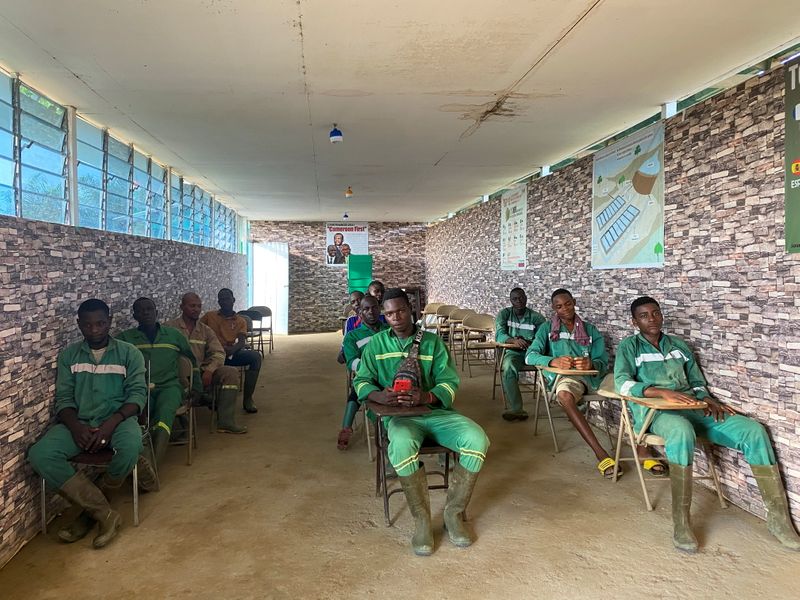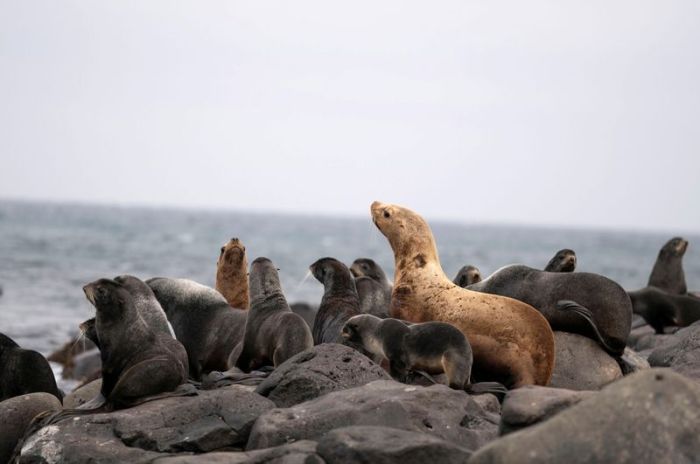DOUALA (Reuters) – When Boris Kamgo scatters food into the netted enclosures of his fish farm on the palm-fringed Dibamba river, the surface churns with the red tilapia he hopes will help curb Cameroon’s dependence on frozen imports.
Spicy grilled fish served whole is one of the central African country’s de facto national dishes, but around half of the some 500,000 tonnes of fish consumed per year is bought from abroad, while the rest is almost all wild-caught.
Kamgo is part of a nascent government-backed aquaculture movement seeking to grab a larger share of the ever-growing market for fish in the nation of over 20 million.
The 32-year-old has travelled to China, the Netherlands and Vietnam to learn how to raise red tilapia and Pangasius, a so-called shark catfish native to Asia that he realised would thrive in Central African waters.
“With this I think we can conquer the market,” Kamgo said, stroking a whiskered Pangasius newly fished out of a fresh water pond at the aquaculture complex of his company Agro World Group, which sells 23 tonnes of fish per month.
Market dominance is a distant dream, but fish farming is on the rise across Cameroon with over 10,000 tonnes produced in 2020 compared with 5,000 tonnes in 2018, according to Divine Ngala Tombuh, deputy head of aquaculture at the fisheries ministry.
“We’ve moved from subsistence or family aquaculture to aquaculture as an employment generator,” Tombuh told Reuters.
To support the country’s 15,000 fish farmers, the government has introduced import bans or limits on certain species including red tilapia. As of 2021, it has also removed all customs duties on imports of aquaculture equipment to encourage the sector to scale up further, he said.
Kamgo is eager to share his expertise with peers in Cameroon and elsewhere on the continent. He trains students how to breed fish at his company’s laboratory outside the commercial capital Douala and sells juvenile fish locally as well as to farmers in neighbouring Gabon and Democratic Republic of Congo.
“Demand always exceeds supply,” he said.
(Reporting by Josiane Kouagheu; Writing by Alessandra Prentice; Editing by Raissa Kasolowsky)

